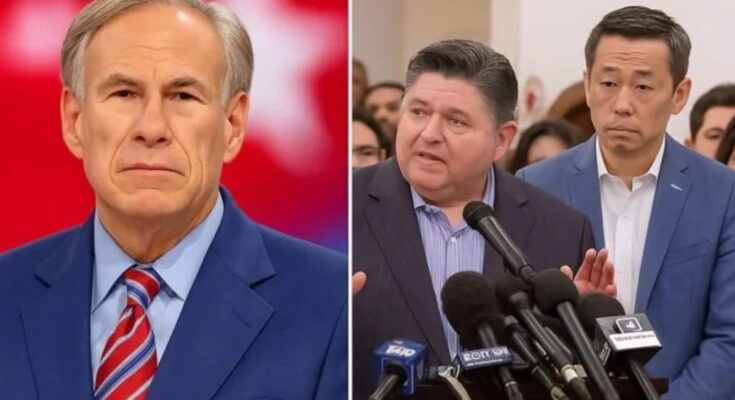In a dramatic and unprecedented move aimed at compelling absent lawmakers to return to the Texas Capitol, the Texas House of Representatives has voted to revoke the direct deposit access for Democratic members who have fled the state in protest. The new measure, which has sparked intense debate across the nation, stipulates that these lawmakers will not receive their paychecks until they physically return to Texas, with no exceptions. This drastic measure follows weeks of political gridlock, during which many Democratic lawmakers walked out of the legislature, breaking quorum in an effort to block the passage of a controversial voting bill that they vehemently oppose.
The new measure comes in the wake of a growing political standoff that has paralyzed the Texas Legislature for several weeks. Democratic lawmakers walked out in protest of a sweeping voting rights bill that many believe would suppress voter turnout, particularly among minority communities. Their departure effectively halted the legislative process, denying Republicans the quorum needed to pass bills, including the controversial voting measure. In response, Republican leaders in the Texas House have now resorted to this bold and punitive action, attempting to use financial pressure as a means of forcing the absent lawmakers back to the state capitol to resume their duties.
In addition to withholding paychecks, each of the absent Democratic lawmakers is now facing a significant fine of $500 for every day they remain absent from the state. The fines are quickly accumulating, adding up to considerable sums for those who continue to defy calls for their return. This action marks a decisive escalation in an already tense situation, as the Texas House leadership seeks to bring the errant lawmakers back into line by leveraging their financial livelihoods.
The measure has already stirred strong emotions in both Texas and across the nation, as political leaders and citizens alike weigh in on the unfolding crisis. Proponents of the action argue that it is a necessary step to hold the Democratic lawmakers accountable for their decision to flee the state, effectively abandoning their duties in order to block the passage of a law they deem harmful. Supporters claim that withholding pay and imposing fines is a fair and just consequence for legislators who have chosen to engage in what they describe as a disruptive and undemocratic tactic to stymie the legislative process.
On the other hand, critics of the move are accusing Republican lawmakers of using their legislative power to punish their political opponents for engaging in what they believe is a legitimate and principled act of protest. Many argue that the tactic represents a form of political retaliation designed not only to force the return of absent lawmakers but to silence opposition to the controversial voting bill. Opponents of the measure point out that it could set a dangerous precedent, in which lawmakers are financially penalized for standing up against legislation they consider to be unjust.
As the situation in Austin continues to unfold, the financial pressure on the absent lawmakers grows more intense by the day. The longer they remain outside of Texas, the larger the fines will become, compounding the personal and financial stakes of the situation. This strategy appears to be designed to put the Democrats in a difficult position, forcing them to choose between returning to the Capitol and resuming the legislative process, or continuing to stay away and risk facing mounting financial penalties that may prove difficult to bear.
As the political standoff drags on, it remains unclear how long the impasse will last and whether the Texas Legislature will be able to resolve its differences over the proposed voting legislation. What is clear, however, is that the consequences of this showdown are far-reaching, not only for the state’s political landscape but for the future of voting laws in Texas. The measures taken by the Texas House leadership signal a willingness to push the limits of political power in an attempt to resolve the deadlock, but whether this will ultimately lead to a resolution or further entrench the divide remains to be seen.
In the coming days and weeks, it will be interesting to see if the escalating financial penalties force the Democratic lawmakers to return to the Capitol or if they continue their protest, risking increasingly larger fines. Either way, the political landscape in Texas appears poised for a major shift, with implications for future elections, voting rights, and the broader national debate over the state of democracy in America. This bold maneuver by Texas Republicans could have lasting effects not just on the current political climate but on how future statesmanship and protest are conducted in the face of deeply contentious legislation.



